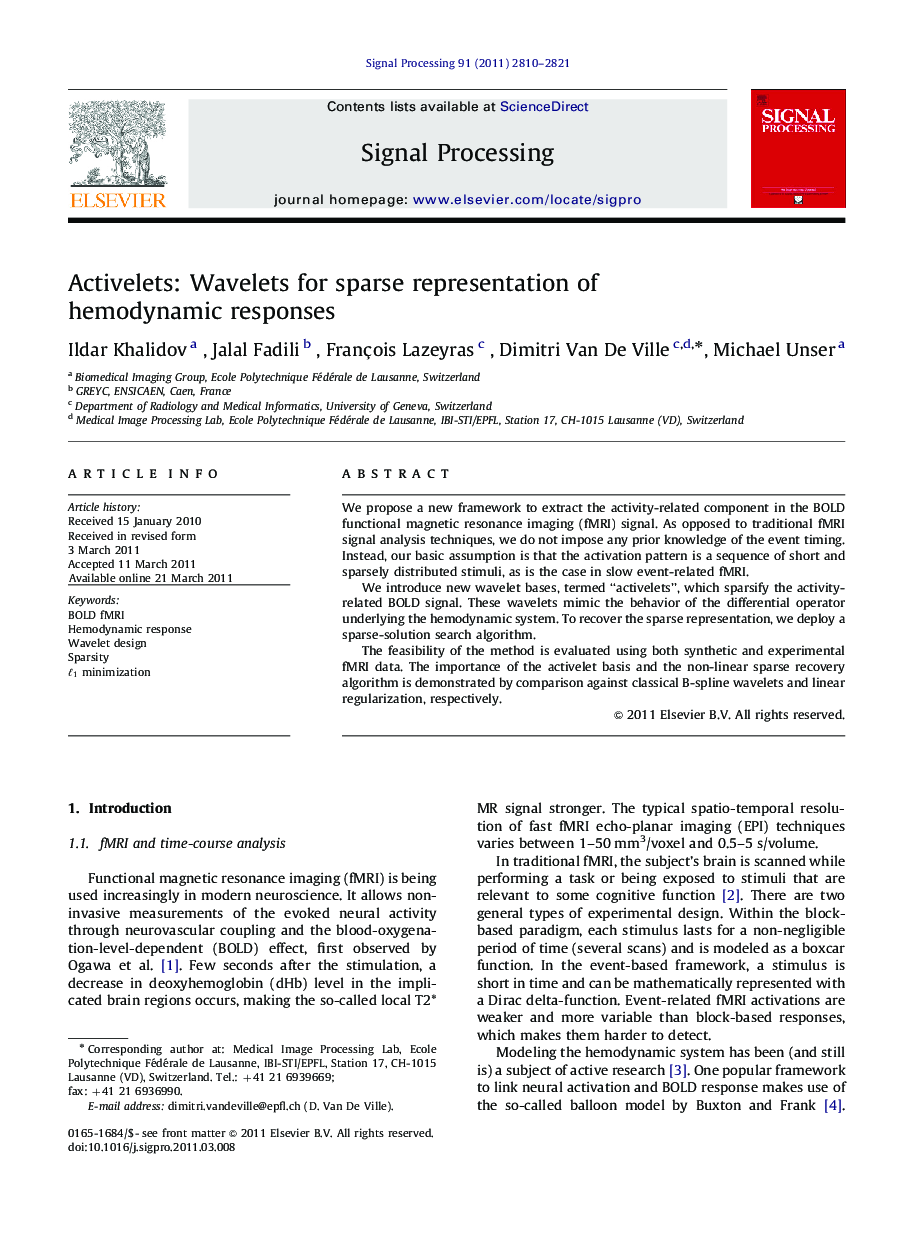| Article ID | Journal | Published Year | Pages | File Type |
|---|---|---|---|---|
| 561493 | Signal Processing | 2011 | 12 Pages |
We propose a new framework to extract the activity-related component in the BOLD functional magnetic resonance imaging (fMRI) signal. As opposed to traditional fMRI signal analysis techniques, we do not impose any prior knowledge of the event timing. Instead, our basic assumption is that the activation pattern is a sequence of short and sparsely distributed stimuli, as is the case in slow event-related fMRI.We introduce new wavelet bases, termed “activelets”, which sparsify the activity-related BOLD signal. These wavelets mimic the behavior of the differential operator underlying the hemodynamic system. To recover the sparse representation, we deploy a sparse-solution search algorithm.The feasibility of the method is evaluated using both synthetic and experimental fMRI data. The importance of the activelet basis and the non-linear sparse recovery algorithm is demonstrated by comparison against classical B-spline wavelets and linear regularization, respectively.
